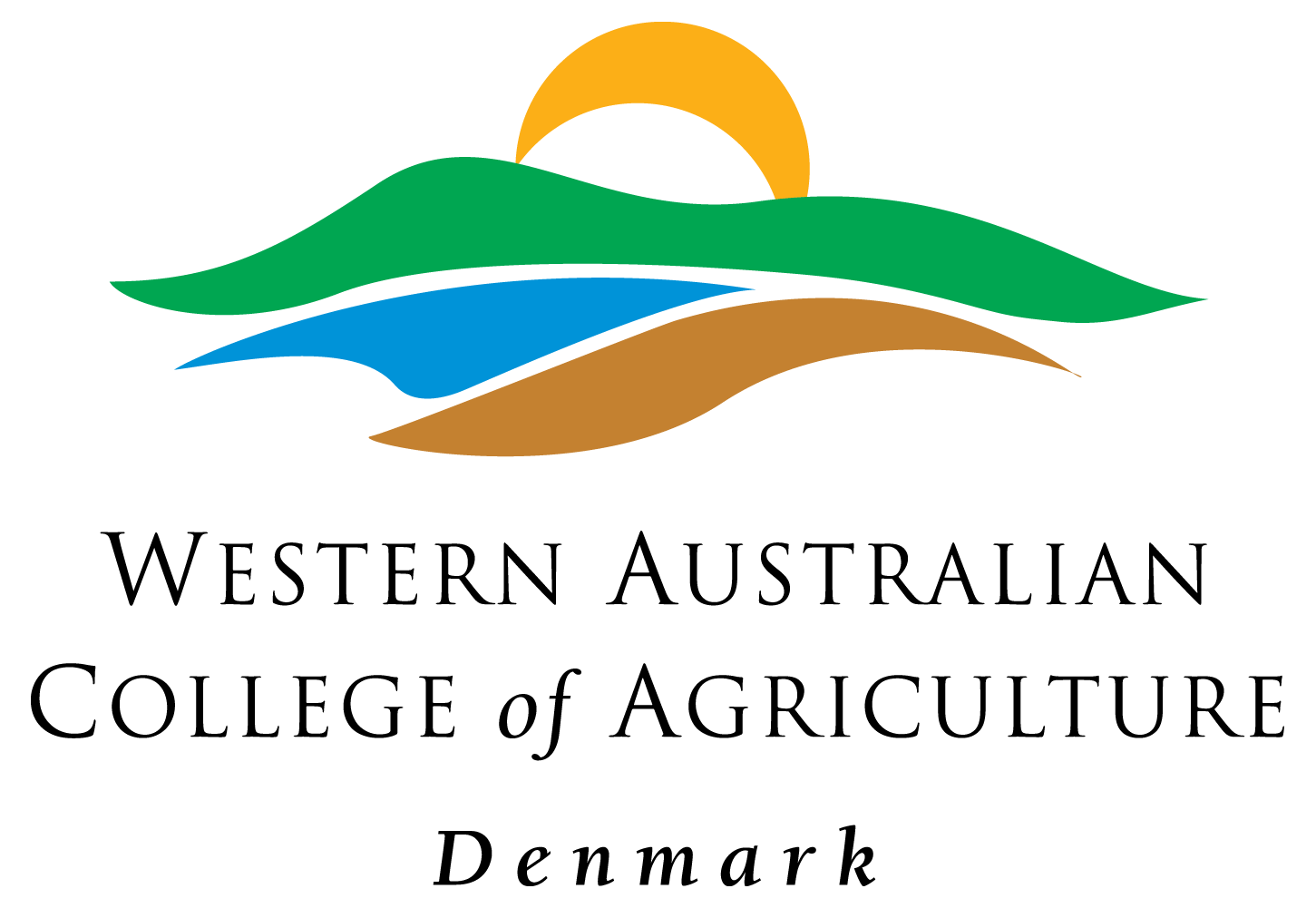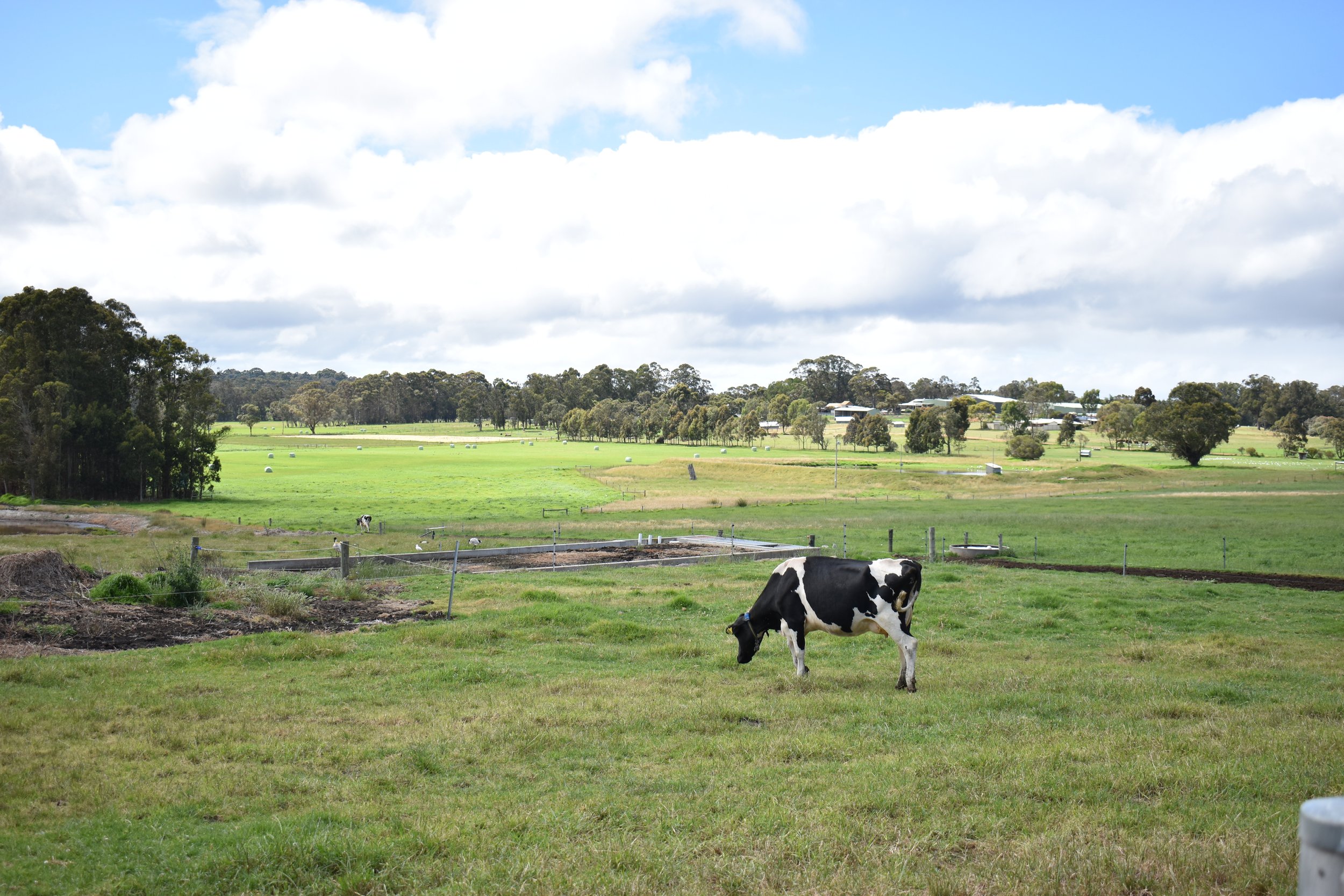Issue 3 2024 - Farm Manager
Farm Manager
Kevin Marshall
What’s been happening on the farm?
Well, what a tough start to the year with Denmark experiencing a record-breaking dry spell. With minimal summer rain the soil profile was bone dry and become powdery and non-wetting. During our seeding programme, these conditions caused quite a staggered germination and disappointing establishment on some soil types. The farm was extremely pleased to put the new Vaderstad seeder to use and predominately had excellent results with it. The main benefits were the quick one-pass seeding operation and the very accurate delivery rates for the seed and fertiliser. The down side was getting to know a new machine and sowing two paddocks too deep and needing to be re-seeded. Since then, the farm has received some reasonable rainfall and with the warmth of the sunny June days, growth has now really picked up.
Sheep and Cattle Clubs are in full swing with animals being prepared for the upcoming show circuit. Cattle Club has thirty steers on a grain ration and staff and students are breaking them into shape.
Sheep Club have some Corriedale ram and ewe hoggets on a lite pellet ration and shedded to get them used to the show life.
All beef cattle are still being fed silage and straw. The herds have just started grazing the new seasons grasses but devouring them very quickly. All female herds have lost a proportion of their condition, and while feeding healthy young calves, have a fair bit of catching up to do. We have been offering high protein pellets to all beef calves using crepe feeders and so far, they have been slow to adopt the feed offerings. This additional feed source will help the mothers maintain and put on some condition.
With the sheep flocks, lambing has been very good with a short lambing window keeping the lambs all of similar age. Mr Schulz and Year 11 students are marking the lambs before the holidays and introducing them to some new seasons pasture.
Cropping talk:
With the sunny days and the crops starting to reach potential grazing age, all sown crops are being sprayed for broad leaf weeds and red legged earth mite. With the dry start to the season, the farm has seen an explosion in Double Gee weeds, so the spraying plan has been swift and forceful. So far, an excellent response to herbicides is visible. At the same time, the freshly grazed pastures are now getting a top up of nutrients. As soon as the livestock come off the paddock, a nitrogen and sulphur fertiliser is applied.
Dairy cows are going well:
Up at the dairy things are flowing quite smoothly. During the past two months the dairy herd has been forced to accept some feeding changes. Due to the extended dry season all silage rations had to be budgeted out to last through until grown feed is available. This meant changing the dairy ration, reducing silage inputs, but increasing grain supplements. It has been a very interesting exercise and we are extremely pleased to say the milk production did not drop too much and animal health and happiness remained very good. The thing that will take the biggest shock is the bank balance with increased costs for pellets and hay/straw. It is seasons like this that remind us of the old saying “A shed full of hay is good insurance” even if you don’t need it.
The dairy herd is systematically being dried off (stopped milking) in preparation for a well-deserved rest and condition build up prior to calving again. Cows have maintained fair condition and can now look forward to some green grass.
An extremely big hit:
As owners of machinery, we must accept sometimes that things break and cost money to repair. Sometimes you can’t budget for this and that’s when it hurts. At the dairy, we run a large tub mixer which mixes up silage, straw, pellets and water to make the dairy ration fed to cows daily. This is a critical piece of machinery essential to providing a stable and reliable feed source for the milkers. During a Sunday in May, the mixer stopped working, and after emptying the feed by hand, we discovered a destroyed gearbox. Immediate sourcing of parts was quite successful and the new box arrived in Denmark within three days. During the down time, a company from Karridale hired us a new machine to allow us to feed the herd.
Unfortunately, the gearbox that arrived was wrong and we needed another one. Fortunately, the correct box was located in Melbourne and sent immediately. After twelve days we had the new box and it was fitted without trouble and the machine was going again. Where the big hit comes into play is the cost. The gearbox and freight was near $20,000.00, and the emergency machine and freight was another $13,000.00. There is no doubt that this type of break down happens from time to time so we just have to wear the pain.
Clean green veges:
Up on the sunny north face, plenty of fresh vegetables are growing nicely at the Horticulture area. The tomatoes have yielded well and supply has been good. Brassica such as broccoli and cauliflower have been planted and are supplying the kitchen with produce. Lots of seedlings have been established recently ready for the next round of production.
Down at the vineyard things have been a bit quiet with vines going into dormancy. Vine pruning will start early next term with all Year groups getting some experience with pruning techniques. Last year’s wines will be available for tasting during Open Day. We look forward to seeing you then.
Kevin Marshall
Farm Manager
WACOA - Denmark





